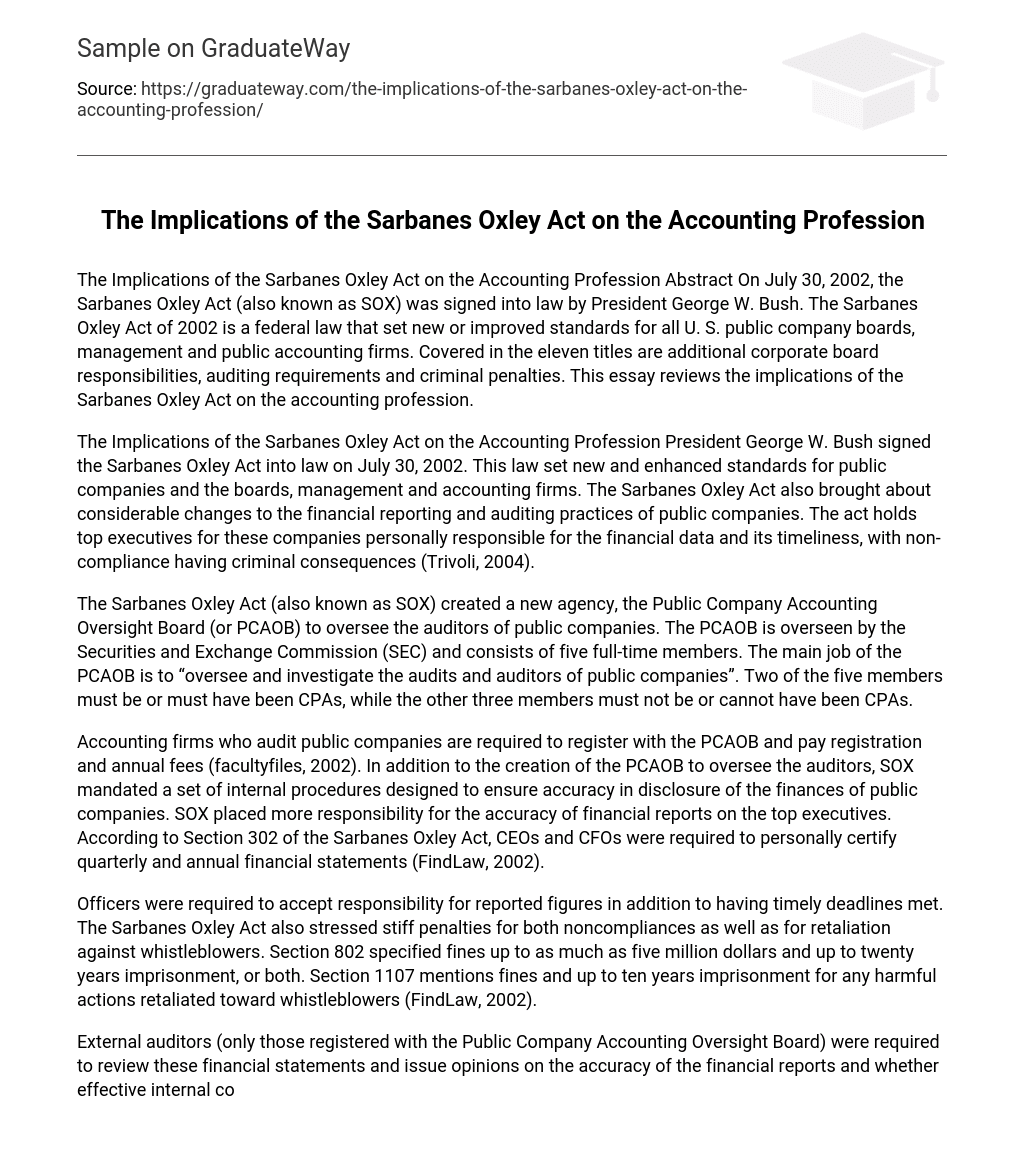The Sarbanes Oxley Act, also known as the Oxley Act or SOX, was signed into law by President George W. Bush in 2002. This legislation imposes more stringent regulations on boards of U.S. public companies, management teams, and public accounting firms. It covers a range of duties for corporate boards, auditing requirements, and penalties for criminal offenses. In this article, we will explore the effects of the Sarbanes Oxley Act on the accounting sector.
The Sarbanes Oxley Act, signed into law on July 30, 2002 by President George W. Bush, has had a major impact on the accounting profession. It introduced enhanced standards for public companies, including their boards, management, and accounting firms. Additionally, it made significant changes to the financial reporting and auditing practices of these companies. A key provision is that the act holds top executives responsible for ensuring accurate and timely financial information. Non-compliance can lead to criminal penalties (Trivoli, 2004).
The Sarbanes Oxley Act, known as SOX, created the Public Company Accounting Oversight Board (PCAOB) to oversee auditors of public companies. The PCAOB is supervised by the Securities and Exchange Commission (SEC) and consists of five full-time members. Its main goal is to “supervise and investigate audits and auditors of public companies.” Two of these members must have a CPA background or prior experience as CPAs, while the other three are not required to be CPAs.
Public accounting firms are obligated to register with the PCAOB and pay fees on a yearly basis. Alongside the establishment of the PCAOB to supervise auditors, SOX also implemented a series of internal processes that aim to guarantee precision in the disclosure of public companies’ finances. Additionally, SOX shifted more accountability for the accuracy of financial reports onto senior executives. According to Section 302 of the Sarbanes Oxley Act, CEOs and CFOs had to personally verify quarterly and annual financial statements.
The officers had to take responsibility for the reported figures and meet deadlines. The Sarbanes Oxley Act emphasized severe consequences for both noncompliance and retaliation against whistleblowers. According to Section 802, fines could go up to five million dollars with a potential prison sentence of twenty years, or both. Section 1107 specified fines and imprisonment of up to ten years for any harmful acts done as revenge towards whistleblowers.
Registered with the Public Company Accounting Oversight Board, external auditors were obligated to assess the accuracy of financial reports and evaluate the effectiveness of internal control for financial reporting. This requirement led to significant costs for companies as a result of the extensive and rigorous verification process.
There has been much debate over whether the cost of the results is justified. In 2003, the SEC received increased appropriations of $776,000,000. Of this amount, $98 million was designated for hiring 200 additional employees to provide better oversight of auditors and audit services required by federal securities laws. During the financial crisis in November 2008, Newt Gingrich called on Congress to repeal Sarbanes Oxley (SOX). Congressman Ron Paul also argued that SOX was an unnecessary and expensive government intrusion that put American corporations at a disadvantage compared to foreign firms.
Despite facing opposition, there was a greater number of people who were enthusiastic about the positive outcomes of SOX. According to the Trivoli Group, “Smart companies recognize that Sarbanes-Oxley presents an opportunity to improve management and increase efficiency.” The objective of implementing SOX was to establish accountability for reported figures and decrease the inaccuracies in financial reports provided to stockholders. This was done to minimize the unnecessary risks connected to public companies.





